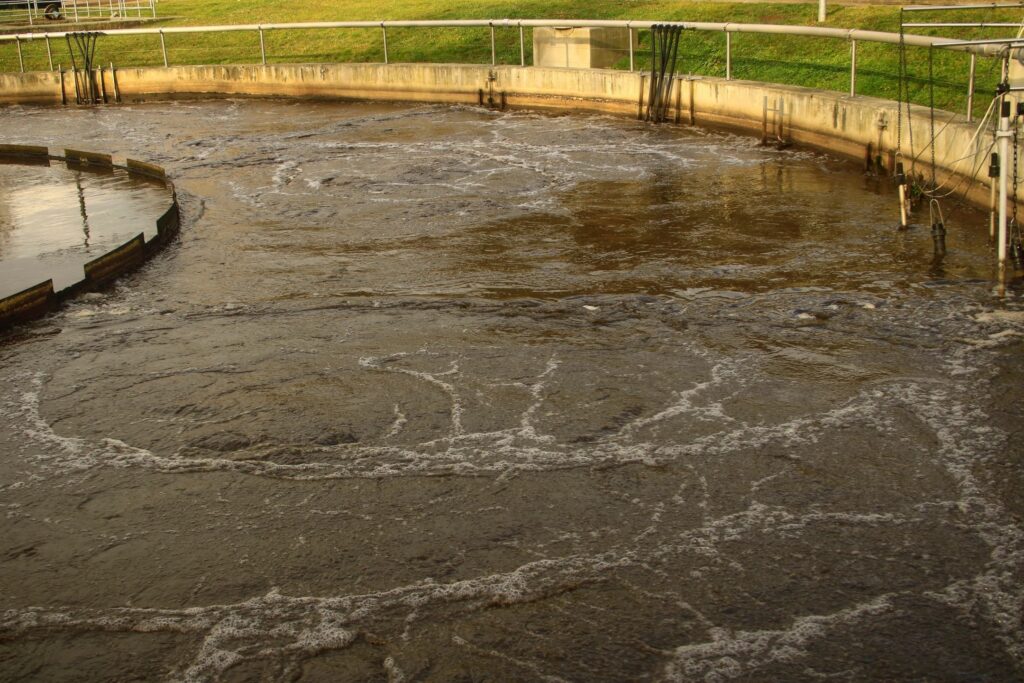New Mexico Democrats, Governor Would Change Focus on Water from a Life-Giving Element of Nature to a Commodity



If Governor Lujan Grisham and a handful of self-identified progressive Democrats have their way, Water could become a resource significantly controlled by corporate interests.
DATELINE: October 8, 2010, reporter Jeneen Interlandi, in a Newsweek story entitled “The Race to Buy Up the World’s Water,” outlined the privatizing of water supplies around the globe. Connecting the story line of a popular film with what was happening in the real world, she noted, “Unlike the villain in James Bond’s Quantum of Solace who hatched a secret plot to monopolize Bolivia’s fresh-water supply, the real water barons cannot be reduced to a simple archetype.”
“…They include a diverse array of buyers and sellers—from multinational water giants like Suez and Veolia that together deliver water to some 260 million taps around the world, to wildcatter oil converts like T. Boone Pickens who wants to sell the water under his Texas Panhandle ranch to thirsty cities like Dallas.”
Fast-forward thirteen years to this legislative session – New Mexico’s water resources and treasury are being ogled by oil and gas operations, technology development and manufacturing corporations, and hedge funds – with enablers in the executive and legislative branches of state government readying easier access to precious natural resources and revenues.
Governor and Legislative Leaders Advance Array of Bills Favoring Industry Interests
In her annual State of the State Address last month, Governor Michelle Lujan Grisham listed water high on her economic development agenda, and earlier this week unveiled a 50-year water action plan claiming to set a water conservation and innovation path.
And she wants the state to put its money where her mouth is, announcing during the state of the state address, “I am asking the Legislature for $500 million in Severance Tax Bonds to make this Strategic Water Supply a reality – spurring the private sector to turn an untapped resource into water that we can use without asking taxpayers to front the cost.”
In her speech the Governor never used the words “produced water” regarding the Strategic Water Supply.
She instead referred to the ocean of brackish water beneath New Mexico’s ground, even though the work she has had agencies engaged in for the last few years is primarily focused on produced water – a by-product of the oil and gas industry which would like someone else to pay for the costs of researching disposal solutions.
As for her financial plan, while she claims that her initiative would not ask taxpayers to front the cost, she conveniently leaves out the part that works like a shell game: the use of these bonds to insulate industry from risking its own cash position would subtract from the severance tax permanent fund’s growth.
In another effort to pave the way for Lujan Grisham’s Strategic Water Supply initiative for produced water and her 50-year Water Action Plan, Democratic legislators have introduced a bill which would divert significant elements of water policy focus from the New Mexico Environment Department to the state’s Economic Development Department.
HB 9 is being heard by the House Commerce & Economic Development Committee this morning beginning at 9:00 a.m., in room 317. Interested people can attend in person or via Zoom by clicking the following link to join the webinar: https://us02web.zoom.us/j/85993976266
Filed by Representatives Nathan Small and Meredith Dixon, the powerful Chair and Vice-chair of the House Appropriation and Finance Committee, HB 9, entitled “Climate, Energy, and Water Division,” among other things, grants rule making authority “for programs and grants for clean energy, water and energy conservation technology pilot and demonstration projects” to the state agency responsible for fast-tracking business interests.
The new division within the Economic Development Department would also “identify site-ready and brownfield locations for climate, energy and water projects.”
The oil and gas industry has been working diligently, with the help of the Lujan Administration and Representative Small, to advance initiatives which would have the state assume more of a financial interest in the industry’s “produced water” problem.
And Small added a $5 million appropriation in the House version of the state budget bill for his proposed new division within the economic development department, even before the bill has been heard in committee.
During the floor debate on the state budget, Small stated he would not accept any amendments to the budget bill, insulating it from any effort to remove the appropriation.
Next week The Candle will report on the industry’s financial support to specific legislators and corresponding delivery of favorable policy through laws and the regulatory process developed by the Governor’s agencies.
Most Environmental Advocates Are Ringing the Alarm Bells – Who is Going to Control the State’s Water?
Many environmental advocates The Candle spoke with expressed concern that the bills and budget appropriations for Governor’s water agenda are being fast-tracked through a 30-day session and that it appeared the sponsors did not involve a fair cross section of stakeholders in discussions before the session.
According to Melissa Troutman of Wild Earth Guardians “The governor’s 50-year water plan commits half a billion dollars to a “strategic water supply” in order to attract water-intensive manufacturing to an arid state. It’s the only part of her plan that has a specific dollar figure attached. Meanwhile, regional water planners are begging for funds to keep rivers flowing and clean up drinking water. It makes no sense.”
Gail Evans, Senior Attorney, Climate Law Institute of the Center for Biological Diversity wrote in response to questions about HB 9, that “it’s troubling that the bill is proposing to create a new ‘climate, energy and water division’ within the Department of Economic Development, putting this department in charge of creating decarbonization programs and developing rules for clean energy, water and energy conservation technology projects. The Department of Economic Development is not the proper home for this type of work – the Environment Department is.
“The bill doesn’t have any guardrails to ensure the safety of New Mexico’s land, water and communities in approving new technology projects.
“Making matters worse, House Bill 9 doesn’t define terms like ‘decarbonization’ and ‘climate, energy and water technology.’ This leaves the door open for taxpayer money to be spent on climate scams like hydrogen, re-sale of the fossil fuel industry’s toxic liquid waste, and carbon capture – technologies that will only perpetuate New Mexico’s reliance on fossil fuels and exacerbate the climate crisis. We urgently need bold action to address the climate and end our reliance on fossil fuels, not just greenwashing of the status quo.”
Mariel Nanasi, Executive Director of New Energy Economy, told The Candle, the bill “sets a dangerous precedent. The economic department should not be doing the work of an environmental agency.
“The Environment Department and Energy, Minerals and Natural Resources Department are the proper agencies for the matters covered by the legislation. And streamlining the permitting process is anathema to the democratic process which protects all stakeholders’ rights to participate.
“Important oversight on climate, energy and water matters belong with the Environment Department not the Economic Department.”
In a blog entry entitled, “GOVERNANCE, TRANSPARENCY, AND ACCOUNTABILITY GUARDRAILS NEEDED TO STRENGTHEN NEW MEXICO CLIMATE POLICY AND INVESTMENTS,” Erik Schlenker-Goodrich ,Executive Director of the Western Environmental Law Center, wrote extensively of the dangers New Mexicans face if they follow the Governor and legislators down the path they want to clear for oil and gas interests.
Here is an excerpt from Schlenker-Goodrich‘s blog entry:
“Unfortunately, the state is putting the cart before the horse, seeking funding prior to crafting assurances into law to provide confidence that these purchases will prove prudent. While the state created a website and fact sheet to explain the Strategic Water Supply, websites and fact sheets are not a substitute for enforceable laws and rules. Public protections like these must also exist before public money is invested.
“The proposed funding mechanism itself raises questions. Funds to purchase the treated water would be raised by selling bonds authorized by HB 2, the annual budget bill, in the coming two fiscal years.
“In effect, the strategic water supply would gamble half-billion-dollar gamble that brackish water and oil and gas wastewater can be cleaned up, sold, and re-used for other purposes — a bet private companies are apparently unwilling to wager at scale.
“This initiative would, meanwhile, sap the severance tax permanent fund’s growth because the $500 million in bonds would be paid off by diverting severance tax revenue away from where they’d otherwise go: the severance tax permanent fund.
“As Legislative Finance Committee economists have found, distributions from this permanent fund “are the most stable revenue source in the general fund and are growing at the fastest rate of all major general fund revenues.”
“Put simply, decisions makers should adhere to this fund’s intent to protect New Mexico’s finances from the inevitable decline of oil and gas revenue — not prop up oil and gas companies with risky bets.”
Rio Grande Chapter of the Sierra Club Hasn’t Made a Decision on the Governor’s Initiatives.
While most environmental groups, like those referred to above, have already weighed in with comments ranging from skepticism to outright alarm, Camilla Feibelman, Director of the the Rio Grande Chapter of the Sierra Club, demurred in response to questions from The Candle.
When asked if the Sierra Club had taken a position on the Governor’s Strategic Water Initiative, and more specifically the Produced Water component, Feibelman texted back, “Since the proposal is pretty unclear we are still trying to understand what it is they’re actually trying to do and there’s actually no legislation associated with it right now.”
She also added, “The caveat I want to say is that in the short sessions there are a lot of ideas that get presented for the very first time and may or may not have any legs and so it’s important to first understand more about the ideas before drawing big conclusions and that is what phase we are in with a lot of things. But there are other things that we’re pushing quite hard on like oil and gas reforms and an array of climate tax credits because those policies are tested and proven and have been discussed before.”
The Candle pointed out to Feibelman that the efforts regarding “regulations for the produced water component of the Governor’s strategic water initiative are already drafted and out of the starting gate.
“In fact NMED has been moving them along for the past several months. That seems to be evidence of the initiative having legs.”
Feibelman provided no further response.
More on the Governor’s Water Plans and Legislative leaders actions next week.